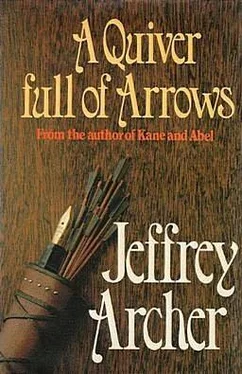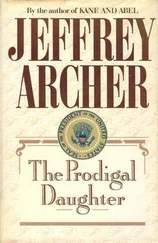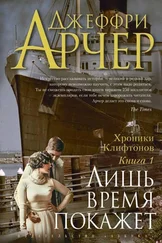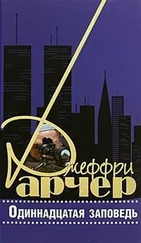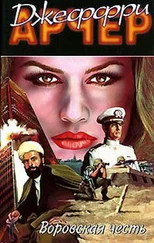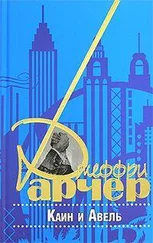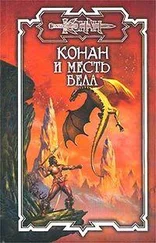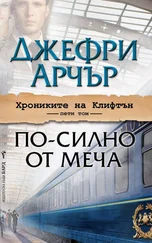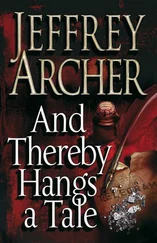Sir Hamish remained silent for a moment. “I appreciate your attitude, Minister, but ten percent of one of your largest contracts?”
“One day,” continued the Secretary of State, as if he had not heard Sir Hamish’s comment, “Victor’s father was fighting in the front line at Zacatecas and looking out across a minefield he saw a young lieutenant, lying face down in the mud with his leg nearly blown off. With no thought for his own safety, he crawled through that minefield until he reached the lieutenant and then he dragged him yard by yard back to the camp. It took him over three hours. He then carried the lieutenant to a truck and drove him to the nearest field hospital, undoubtedly saving his leg, and probably his life. So you see the government has good cause to allow Perez’s son the privilege of representing it from time to time.”
“I agree with you, Minister,” said Sir Hamish quietly. “Quite admirable.” The Secretary of State smiled for the first time. “But I still confess I cannot understand why you allow him such a large percentage.”
The minister frowned. “I am afraid, Sir Hamish, if you cannot understand that, you can never hope to understand the principles we Mexicans live by.”
The Secretary of State rose from behind his desk, limped to the door and showed Sir Hamish out.
Coincidences, authors are told (usually by the critics), must be avoided, although in truth the real world is full of incidents that in themselves are unbelievable. Everyone has had an experience that, if they wrote about it, would appear to others to be pure fiction.
The same week that the headlines in the world newspapers read “Russia Invades Afghanistan,” “America to Withdraw from Moscow Olympics” there also appeared a short obituary in The Times for the distinguished Professor of English at the University of Budapest. “A man who was born and died in his nation’s capital and whose reputation remains assured by his brilliant translation of the works of Shakespeare into his native Hungarian. Although some linguists consider his Coriolanus immature they universally acknowledge his Hamlet to be a translation of genius.”
Nearly a decade after the Hungarian Revolution I had the chance to participate in a student athletics meeting in Budapest. The competition was scheduled to last for a full week, so I felt there would be an opportunity to find out a little about the country. The team flew in to Ferihegy Airport on Sunday night and we were taken immediately to the Hotel Ifushag. (I learned later that the word meant youth in Hungarian.) Having settled in, most of the team went to bed early since their opening round heats were the following day.
Breakfast the next morning consisted of milk, toast and an egg, served in three acts with long intervals between them. Those of us who were running that afternoon skipped lunch for fear that a matinee performance might cause us to miss our events completely.
Two hours before the start of the meeting, we were taken by bus to the Nép stadium and unloaded outside the dressing rooms (I have always felt they should be called undressing rooms). We changed into track suits and sat around on benches anxiously waiting to be called. After what seemed to be an interminable time but was in fact only a few minutes, an official appeared and led us out onto the track. Because it was the opening day of competition, the stadium was packed. When I had finished my usual warm-up of jogging, sprinting and some light calisthenics, the loudspeaker announced the start of the 100-meter race in three languages. I stripped off my track suit and ran over to the start. When called, I pressed my spikes against the blocks and waited nervously for the starter’s pistol. Felkészülni, Kész — bang. Ten seconds later the race was over and the only virtue of coming in last was that it left me six free days to investigate the Hungarian capital.
Walking around Budapest reminded me of my childhood days in Bristol just after the war, but with one noticeable difference. In addition to the bombed-out buildings, there was row upon row of bullet holes in some of the walls. The revolution, although eight years past, was still much in evidence, perhaps because the nationals did not want anyone to forget. The people on the streets had lined faces, stripped of all emotion, and they shuffled rather than walked, leaving the impression of a nation of old men. If you inquired innocently why, they told you there was nothing to hurry for, or to be happy about, although they always seemed to be thoughtful with each other.
On the third day of the games, I returned to the Nép stadium to support a friend of mine who was competing in the semi-finals of the 400-meter hurdles, the first event that afternoon. Having a competitor’s pass, I could sit virtually anywhere in the half-empty arena. I chose to watch the race from just above the final bend, giving me a good view of the home straight. I sat down on the wooden bench without paying much attention to the people on either side of me. The race began and as my friend hit the bend crossing the seventh hurdle with only three hurdles to cover before the finishing line, I stood and cheered him heartily all the way down the home straight. He managed to come in third, ensuring himself a place in the final the following day. I sat down again and wrote out the detailed result in my program. I was about to leave, as there were no British competitors in the hammer or the pole vault, when a voice behind me said:
“You are English?”
“Yes,” I replied, turning in the direction from which the question had been put.
An elderly gentleman looked up at me. He wore a three-piece suit that must have been out of date when his father owned it, and even lacked the possible virtue that some day the style might come back into fashion. The leather patches on the elbows left me in no doubt that my questioner was a bachelor, for they could only have been sewn on by a man — either that or one had to conclude he had elbows in odd places. The length of his trousers revealed that his father had been two inches taller than he. As for the man himself, he had a few strands of white hair, a walrus mustache and ruddy cheeks. His tired blue eyes were perpetually half-closed, like the shutter of a camera that has just been released. His forehead was so lined that he might have been any age between fifty and seventy. The overall impression was of a cross between a tram inspector and an out-of-work violinist.
I sat down for a second time.
“I hope you didn’t mind my asking?” he added.
“Of course not,” I said.
“It’s just that I have so little opportunity to converse with an Englishman. So when I spot one I always grasp the nettle. Is that the right colloquial expression?”
“Yes,” I said, trying to think how many Hungarian words I knew. Yes, No, Good morning, Goodbye, I am lost, Help.
“You are in the student games?”
“Were, not are,” I said. “I departed somewhat rapidly on Monday.”
“Because you were not rapid enough, perhaps?”
I laughed, again admiring his command of my first language.
“Why is your English so excellent?” I inquired.
“I’m afraid it’s a little neglected,” the old man replied. “But they still allow me to teach the subject at the university. I must confess to you that I have absolutely no interest in sport, but these occasions always afford me the opportunity to capture someone like yourself and oil the rusty machine, even if only for a few minutes.” He gave me a tired smile but his eyes were now alight.
“What part of England do you hail from?” For the first time his pronunciation faltered as “hail” came out as “heel.”
“Somerset,” I told him.
Читать дальше
